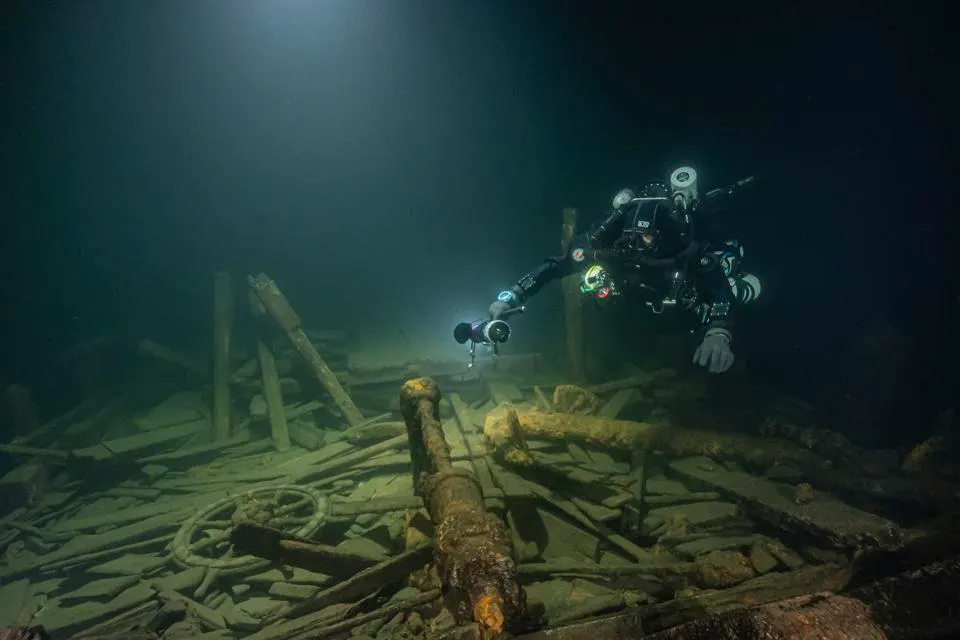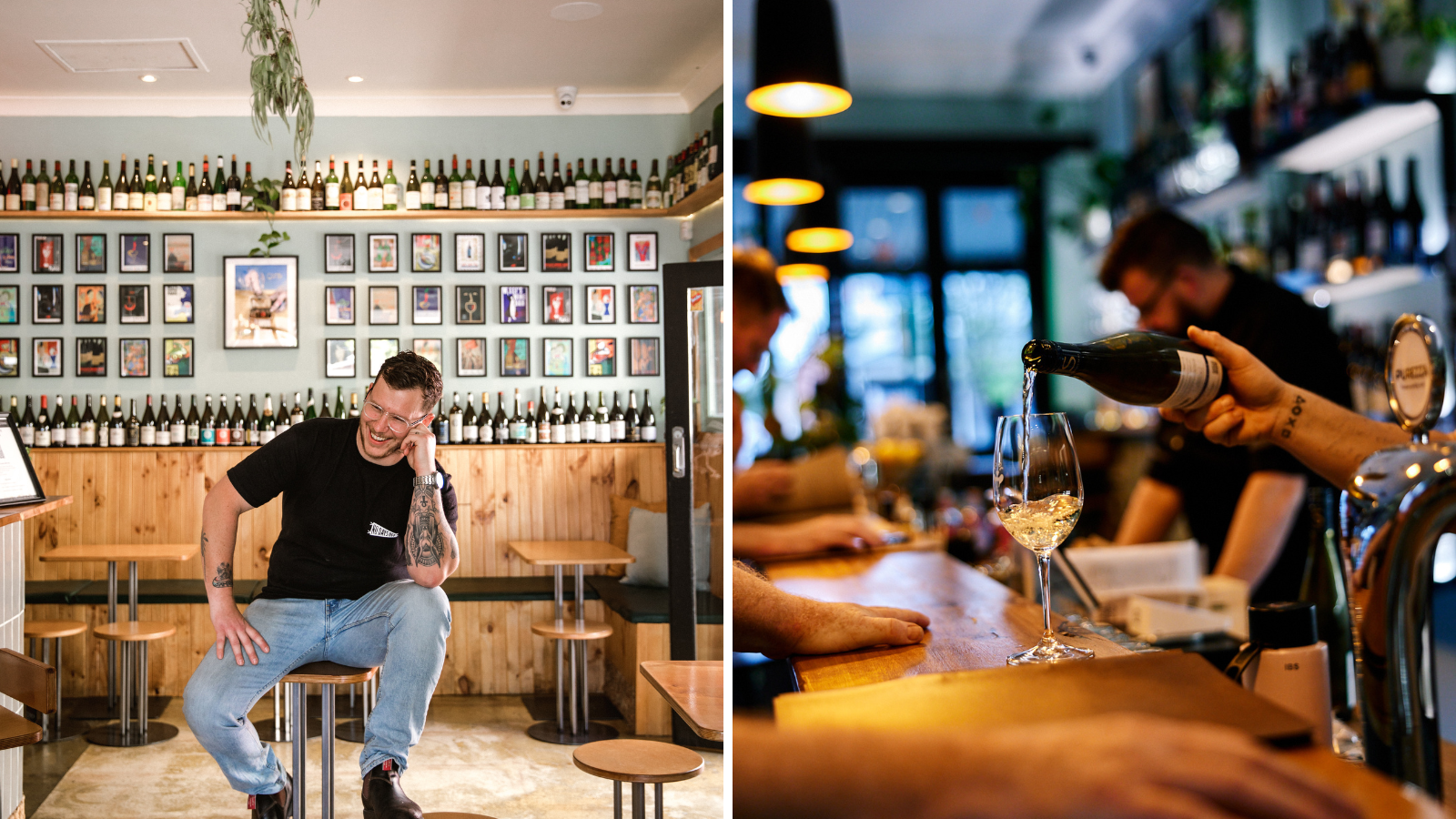Scuba divers off the coast of southern Sweden recently came across a wreck roughly 190 feet below the surface of the Baltic Sea. It wasn’t a new discovery. The scuttled schooner from the mid-19th century was initially found back in 2016 and has been registered with the country’s National Antiquities Office ever since. Unbeknownst to all, however, was the valuable cargo hidden within its hull: a liquid treasure that could be worth upwards of $4 million.

Last month, the divers uncovered crate upon crate of uncorked champagne bottles dating back to the 1850s. Not your everyday find, even with the 100,000-some-odd shipwrecks estimated to be scattered across the floor of the Baltic Sea. In fact, the leader of the lucky dive team, Tomasz Stachura, told the BBC that he had never seen anything remotely like it in his 40 years on the job.
Upon first glance, the liquid appears fantastically well-preserved; spared the spoil of oxidation on account of quality sealing. It’s impossible to say for certain right now, though, because the Swedish government has just made it clear that nobody is allowed to salvage the bubbly booty…unless they can secure proper authorisation. And officials have yet to make it clear how—or when—exactly such clearance will be doled out.
What we do know for certain is that this shipwrecked champagne is going to fetch a sizeable fortune whenever it comes up for air. And we know this because there is precedent in the very recent past. In 2010, another shipwreck at the bottom of the Baltic Sea was found full of French sparkling wine: 168 bottles of nearly 200-year-old juice, including sealed bottles from legendary producers still in operation today, like Veuve Clicquot.

After they had been lifted to the surface, some of those bottles were popped and tasted by a select team of sensory professionals (you know, in the name of science). What they sampled exceeded even the most lofty of expectations. So, a year later, when a single bottle from that same salvaged trove came to auction, it wasn’t all too surprising to see it fetch a record sum of €30,000.
It’s not entirely unreasonable to suspect a similar fate for this latest Baltic discovery. If so, that €30,000 number from 2011 equals about $45,875 per bottle today (adjusted for inflation). Stachura reports seeing roughly 100 sealed bottles during his dive, potentially representing $4.58 million worth of wine. But it’s all just idle speculation unless the Swedish government grants access to the stash. It’s certainly under no pressure to do so anytime soon. And the wines been quietly aging for over 172 years. So what’s another moment or two of waiting?
This story was originally published on forbes.com and all figures are in USD.
Look back on the week that was with hand-picked articles from Australia and around the world. Sign up to the Forbes Australia newsletter here or become a member here.


